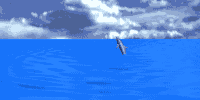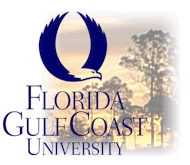


![]() Session
5/DL
Colloquium/Spring 2006
Session
5/DL
Colloquium/Spring 2006
February 6 - 12ruary 9 - 15
Thus, the extent that Ecological Footprint analysis reflects biophysical reality, it is good news for a better and more secure future. The bad news is the conventional dream that the human enterprise can be expanded forever on a finite planet. This expansionist vision might sound attractive, but it is bound to fail in its current form. This failure would be very painful. It would hurt the poor first, the rich later, and all the way along destroy many of our fellow species. The Ecological Footprint approach acknowledges that humanity is facing difficult challenges, makes them apparent, and directs action toward sustainable living. Admittedly, acknowledging the darker side of the human condition is sometimes painful - avoidance is sweet temptation. However, this book takes the position that denial today leads to greater pain tomorrow. We believe that the first step toward a more sustainable world is to accept ecological reality and the socioeconomic challenges it implies. And "business as usual" strategy that perpetuates today's destructive lifestyles would be a disservice to our children.
-p. 3, Mathis Wackernagel and William Rees "Our Ecological Footprint: Reducing Human Impact on the Earth"
![]() Reading
Reading
![]() Sense
of Place III: "A Question of Sustainability" Field Trip
Sense
of Place III: "A Question of Sustainability" Field Trip
Field Trip 3: "Balancing Human Needs with Natural Systems---An Estuarine Encounter"
The title of this week's field trip should give you a good clue as to what the goals and learning outcomes of this trip are. The field destination site is to our coastal backyard where fresh water flowing off the land meets and mixes with salty waters of the Gulf or Ocean. These semi-enclosed bodies of water are called estuaries and are one of the most productive ecosystems found on Earth. Choose an estuary to visit. If you live in or near Charlotte, Lee or Collier County in SW Florida, will find a list of places below to help you in your choice.
One place you might like to visit is Estero Bay, located behind Ft. Myers Beach. In 1966, Estero Bay was designated as Florida's first State Aquatic Preserve. Before it was claimed as a preserve, human encroachment and subsequent development changed the surrounding land and the bay's sustaining natural systems. Impacts began to accumulate rapidly and concerned citizens spoke up. At one point, preservation efforts led to United States Supreme Court intervention. Because of these early efforts, the bay is still home to a myriad of marine life including bottlenose dolphins, manatees, and sea turtles. Still intact are critical habitat areas such as bird rookeries, seagrass beds, and the ever-important mangroves - the cradle of the sea. Since systems are connected, important questions to ask here are:
You may recall that the focus questions for the Colloquium field trips are: 1) How does the health of one system affect the productivity and health of another system and 2) What actions can we take to protect and restore our natural systems?In visiting an estuary and writing your field trip summary, I would like you to answer the above questions.
Also:
To help you answer the above questions, read the interpretive kiosks that you can find at Lovers Key State Recreation Area, Charlotte Harbor Environmental Center, Rookery Bay/Briggs Nature Center or wherever you go that has intrepretive signs. Talk to the park rangers or naturalists or field trip leaders (National Estuaries Day) at the sites. An excellent website to gather information about Estero Bay is: http://www.ecotrail.com/index.html . I encourage you to read through the site. Another brand new website to learn more about Estero Bay is http://www.calusablueway.com/
Other good sites are: http://www.dep.state.fl.us/coastal/sites/southwest/esterb/info.htm
For those living outside of SW FL, go to the FL DEP State Parks website by linking from our Colloquium website. You should be able to find a suitable park to visit.
If you live in Southwest Florida, here are some good destinations:
Need help with field trip destination ideas? Email me.
You have 3 weeks in which to complete this trip. Due date: February 27th
Looking ahead
You are required to read a work of Florida literature of your choice and write a paper based on your reading. This is for short paper #4 due . Some authors you might find interesting are Carl Haissen, Randy Wayne White, Marjory Stoneman Douglas. This should be pleasurable, relaxed reading! Suggested books for your Floridiana reading are found on the website. You do not have to read a book from this list, however.
Journals
Remember to keep making journal entries--what do you see when you drive? how do your friends perceive environmental issues?, etc., and bring on field trip.
Questions? Comments? Please contact me with any questions and/or comments. Have an enjoyable field trip!
Home![]() Introduction
Introduction ![]() Writing Papers
Writing Papers ![]() Readings
Readings ![]() Schedule
Schedule ![]() Assignments
Assignments
![]() Journals
Journals ![]() Final Project
Final Project ![]() Field Trips
Field Trips![]() Rubrics
Rubrics ![]() Links
Links
|
©
FGCU 2003 This is Website
designed by |
|
Florida Gulf Coast University 10501 FGCU Blvd. South Fort Myers, Florida 33965 |